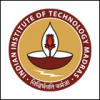How to become a Physicist
Overview, Courses, Exam, Colleges, Pathways, Salary

Overview
Who is Physicist ?
As scientists, Physicists are focused on examining the principles and properties of different forms of matter and energy, and how they interact. Primarily, their efforts are geared towards studying the universe, from subatomic particles to large galaxies, they aim to uncover the laws governing time and space. Utilizing specialized equipment, such as lasers and telescopes, uncover the principles governing physical phenomena that shape the natural world. A good part of a Physicist’s job requires delving into extensive research. They generate data by conducting experitments to test their hypotheses and draw conclusions from. They are also involved in designing scientific equipment that is necessary to conduct experiments such as electron microscoepes and particle accelerators. The field divides into two broad areas, applied physics and theoretical physics. The research focused on applying the knowledge of physics to benefit the general public comes under the purview of applied physics; on the other hand, investigating areas without concerning themselves with its practical applications has to do with theoretical physics. Their work on developing theories based on the data gathered through observations and experiments.
Typical day at work
What does Physicist do?
Physicists usually specialize in certain focus areas, which dictate the responsibilities that they are endowed with:
- Write research proposals and grant applications to obtain funding in order to contribute to the field by conducting research
- In accordance with the methology and purpose of the research, generate hypotheses, plan the path and procedure of the study to gather relavant data
- Conduct experiements needed to carry out the research while ensuring accuracy of the results data by perfomring quality control tests
- Evaluate and analyze the results obtained by performing complex calculations and expressing the data in mathematical terms when relevant
- Report results of the study by publishing it in journal or presenting it at scientific conferences
- Work with fellow scientists in creating and testing equipment and procedures that apply the knowledge of physics such as nuclear energy
- Engage in developing theories pertaining to relevant concepts that can be applied to propose solutions to real-world problems in medical, military, commercial and industrial sectors
- Devote time to generate computer simulations to study relevant phenomena effectively as well as to study the effects of industrial activities on the environment
Abilities and Aptitude needed
What are the skills, abilities & aptitude needed to become Physicist?
As a part of a competitive, scientific field, Physicists tend to be investigative, rational, and logical individuals with extensive knowledge of physics and mathematics. in addition, a good grasp over the principles of engineering science and technology as well as that of relevant computer applications is also required. Excellent complex problem-solving skills as well as analytical thinking and resoning skills are requisite to choose this career option. Apart from this, a physicist needs to possess the ability to express complex phenomena effectively, using both verbal and written means, making communication skills another crucial aspect for this job. Ease with applying scientific and mathematical knowledge to resolve problems, theoretical or application based as is relevant to their job, is a skill of importance for a physicist. For a Physicist, research and project development skills are frequently put to use on the job as they are tasked with utilizing their logic and reasoning abilities to develop probable theories which can be tested using experiments.
Salary
Salary for Physicist?
Salary of A Physicist is as follows :
- Minimum Monthly Salary: Entry-level physicists may earn a minimum monthly salary of around INR 25,000 to INR 40,000. These are typically individuals who have recently completed their education, such as a master's degree or PhD and are starting their careers in physics.
- Maximum Monthly Salary: Experienced and highly skilled physicists with advanced degrees, specialised expertise, and several years of research experience may earn anywhere from INR 60,000 to INR 1,50,000 or more monthly. The salary can vary based on factors such as the field of physics, the reputation of the research institution, and the scope of the research projects they are involved in.
- Annual Salary: The annual salary may range from INR 3,00,000 to INR 4,80,000 for entry-level or junior physicists. As physicists gain more experience, publish influential research papers, secure prestigious research grants or projects, and contribute significantly, their annual income can increase from approximately INR 7,20,000 to INR 18,00,000 or higher.
- Highest Paying Jobs and Scope: Physicists who work in research-intensive industries or fields with high demand for their expertise, such as aerospace, defence, or advanced technology, may have better salary prospects. Those specialising in cutting-edge areas like quantum physics, particle physics, or astrophysics may also have higher salaries. The scope for physicists in India is promising as research and development in various sectors grow. Physicists can find employment opportunities in academic institutions, research laboratories, government organisations, and private companies.
Pathways
How to become an Physicist?
Entrance Exam
Entrance Exam for Physicist ?
IISERs - Marks in 12th class (Central or state board), JEE Adv, KVPY.
IITs: IIT - JEE
IISC: JEE-Main, JEE-Advance, KVPY and NEET-UG
NISER Bhubneshwar - NEST
CBS- Mumbai - NEST
IIST- JEE (Advance)
University of Hyderabad: BS-MS: (their own entrance exam)
The Indian Association for the Cultivation of Science (IACS), Kolkata
BITS: BITSAT (There is B.E+MSc dual degree program and integrated BSc+MSc program as well )
Pondicherry University: (their own entrance exam)
In Kerala:
Mahatma Gandhi University: IIRBS
Cochin University: CUSAT - CAT ( newly started)
Courses
Which course I can pursue?
Best Colleges
Which are the best colleges to attend to become an Physicist?
Industries
Which Industries are open for Physicist?
Physicists have diverse career opportunities and can work in various industries that require expertise in physics and scientific research. Some of the industries open for physicists include:
- Academia and Research Institutions: Many physicists work in universities, colleges, and research institutions where they conduct cutting-edge research, publish scientific papers, and educate the next generation of scientists.
- Government Research Laboratories: Physicists often find employment in government-funded research laboratories such as NASA, DOE National Labs, and other agencies, contributing to scientific advancements and government projects.
- Private Research and Development: Physicists are employed in private companies and industries that conduct research and development in areas like electronics, telecommunications, materials science, and renewable energy.
- Aerospace and Defense: The aerospace and defense industry often employs physicists to work on projects related to space exploration, satellite technology, missile systems, and defense research.
- Energy and Environmental Sector: Physicists may work in the energy sector, focusing on renewable energy technologies, nuclear energy, and energy efficiency research. They may also contribute to environmental studies and sustainability projects.
- Medical and Healthcare: In the medical field, physicists are involved in medical imaging, radiation therapy, and research in medical devices and technologies.
- Finance and Technology: Some physicists transition to careers in finance and technology, where their analytical and problem-solving skills are highly valued in areas like quantitative finance, data science, and software development.
- Consulting: Physicists may work as consultants, offering their expertise in specialized areas like modeling, simulations, and data analysis to various industries.
- Education and Science Communication: Physicists may pursue careers in science education, science journalism, and science communication, engaging with the public and making complex scientific concepts accessible to a broader audience.
internship
Are there internships available for Physicist?
Internships for physicists can provide valuable hands-on experience and exposure to research environments. While internships specific to physics may vary depending on the location and available opportunities, here are some potential avenues for aspiring physicists to explore:
- Research Institutions and Universities: Many research institutions, universities, and laboratories offer summer internships or research assistant positions for undergraduate and graduate students. These internships provide opportunities to work with experienced researchers and contribute to ongoing scientific projects.
- Government Agencies: Government organizations like NASA, the National Institutes of Health (NIH), the National Institute of Standards and Technology (NIST), and the Department of Energy (DOE) may offer internships in various physics-related research areas.
- Private Companies: Technology and engineering companies, especially those involved in research and development, may have internship programs for physicists to work on projects related to optics, electronics, materials science, or data analysis.
- Medical Research: Hospitals and medical research institutions may offer internships for physicists interested in medical physics, radiation therapy, or medical imaging.
- Energy and Environmental Sector: Energy companies and environmental research organizations may provide internships related to renewable energy technologies, climate research, or environmental monitoring.
- Science Museums and Science Centers: Science museums and centers may offer internships in science education and science communication, allowing physicists to engage with the public and communicate scientific concepts effectively.
- Nonprofit Research Organizations: Nonprofit research organizations focused on scientific research and education may offer internships for physicists in various specialized fields.
Career outlook
What does the future look like for Physicist?
Since Physics is fundamental to many other fields, it can be applied to a range of interest areas, thereby increasing the employmental opportunities for Physicists. Physicists are typically employed in laboratories, government agencies, hospitals, defence, research centres, private sector industries, and universities, with most opportunities present in the medical sector. Of those who are employed in the private industries, many work for companies that develop chemicals, aircraft, electrical machinery. A physicist generally specializes in a specific area, with the most common being medical, atomic, astrophysics etc. For physicists, working in the education sector is another common route, which requires the individual to hold a PhD. It allows them to flexibly exercise control over their research endeavours - conducting research, publishing research articles and papers, presenting papers and disseminating the knowledge of their finding. On the basis of their performance in terms of research, they can be offered senior academic posts. Physicists may work at research organizations that offer training on the job. Some others, however, use their expertise and advanced analytical skills in other professional fields such as engineering, computer science, electronics, R&D. Their work is required for building sophisticated instruments such as medical equipment and other advanced materials.







